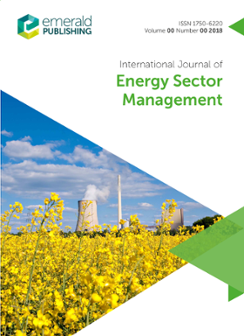Energy independence: Introduction
Energy independence for Europe
Recent academic contributions

Image: Pixabay.com.
About the selection
This selection of books and articles are mainly from the EC Library’s e-collection, obtained through its search tool Find-eR.
Access may be restricted to Commission staff or to users at subscribing institutions.
The resources listed in the EC Library Guides do not necessarily represent the positions, policies or opinions of the EU institutions and bodies.
Find-eR search terms:
- energy independence and the European Union
- biofuel and the European Union
- renewable energy
- energy supply, EU and Russia
- energy policy and the European Union
Material types
eJournal article: Title links to the article reference in Find-eR with link/s to the full text article from one or more providers.
eBook: Title links to the reference in Find-eR with link to the electronic book.
Article, Think Tank paper: Title links directly to the online version.
Introductions
eBook
The Palgrave Handbook of International Energy Economics by (editors) Manfred Hafner; Giacomo Luciani (both from SciencesPo Paris, FR)
Palgrave Macmillan, 2022, LXVI, 770 pages.
The book looks at international energy, rather than domestic energy policies or international geopolitic aspects. Addressing key topics such as energy production and distribution, renewables and corporate energy structures, alongside global energy trends, regional case studies and emerging areas such as the digitalization of energy and energy transition, this handbook provides a major new contribution to the field of international energy economics.
See for instance the chapter Energy and the Economy in Europe by Manfred Hafner & Pier Paolo Raimondi, pp 731–761.
EU service
- Energy prices: Commission presents a toolbox of measures to tackle exceptional situation and its impacts
 October 2021: The Commission adopted today a Communication on Energy Prices, to tackle the exceptional rise in global energy prices, which is projected to last through the winter, and help Europe's people and businesses. The Communication includes a “toolbox” that the EU and its Member States can use to address the immediate impact of current prices increases, and further strengthen resilience against future shocks.
October 2021: The Commission adopted today a Communication on Energy Prices, to tackle the exceptional rise in global energy prices, which is projected to last through the winter, and help Europe's people and businesses. The Communication includes a “toolbox” that the EU and its Member States can use to address the immediate impact of current prices increases, and further strengthen resilience against future shocks.
eJournal article
- Cooperation of EU with Russia in the Field of Energy: A Review
 By Paris A. Fokaides (Frederick University, Nicosia, CY). In: Current Sustainable / Renewable Energy Reports, volume 7, pages 1–8 (2020).
By Paris A. Fokaides (Frederick University, Nicosia, CY). In: Current Sustainable / Renewable Energy Reports, volume 7, pages 1–8 (2020).
Natural gas is of immense importance in the energy relationship between the European Union (EU) and Russian Federation. Over the past half century, the Soviet Union initially and the Russian Federation since the early 90 s’ have been vital suppliers of natural gas to the EU member states. Since 2000, the two parties’ trade relations in the field of natural gas and other energy commodities trading can be characterized as turbulent. The purpose of this review study is to present the main aspects of the cooperation of the EU member states with Russia in the field of energy.
eJournal article
- The 2021–2022 European Natural Gas Disaster: Was Reagan Right and Thatcher Wrong?
 By Jeff D. Makholm (US consultant). In: Climate and energy (Online), 2022-05, Vol.38 (10), p.1-9
By Jeff D. Makholm (US consultant). In: Climate and energy (Online), 2022-05, Vol.38 (10), p.1-9
Europe's energy supply is in crisis this winter. Owing to the evident Russian manipulation of its natural gas exports to the European Union (EU) in advance of its invasion of Ukraine, prices have spiked wildly — 24 times the prevailing EU natural gas price in the summer of 2020 and up to 10 times contemporaneous US natural gas prices in early 2022. Because natural gas prices often‐enough drive the EU's electricity market model prices, the resulting electricity prices at the time of writing throughout the EU were three to six times higher than their 2019 level. The result is a disaster for EU energy consumers in 2022.
eJournal article
- The European Union oil dependency: a threat to economic growth and diplomatic freedom
 By Rafael Alexis Acevedo (Texas Tech Univ., US), Maria Lorca-Susino (Univ. Miami, US). In: International journal of energy sector management, 2021-07-29, Vol.15 (5), p.987-1006.
By Rafael Alexis Acevedo (Texas Tech Univ., US), Maria Lorca-Susino (Univ. Miami, US). In: International journal of energy sector management, 2021-07-29, Vol.15 (5), p.987-1006.
This paper provides a general review of the current energy dependency of the European Union (EU) and the possible threat that it poses to economic growth and diplomatic freedom.
eJournal article
- Do high electricity bills undermine public support for renewables? Evidence from the European Union
 Michaël Aklin (Univ. Pittsburgh, US). In: Energy Policy, Volume 156, September 2021, 112400.
Michaël Aklin (Univ. Pittsburgh, US). In: Energy Policy, Volume 156, September 2021, 112400.
The clean energy transition has long been framed in terms of its technological and economic feasibility. An increasingly salient constraint lies in its political feasibility. The transition requires vigorous public support to be completed. Yet increased consumer costs associated with the deployment of renewable electricity could make voters - and, by extension, governments - less supportive of it. As a result, overly aggressive government support for renewables could lead to its own downfall.
- Last Updated: Nov 13, 2024 4:07 PM
- URL: https://ec-europa-eu.libguides.com/energy_independence
- Print Page
